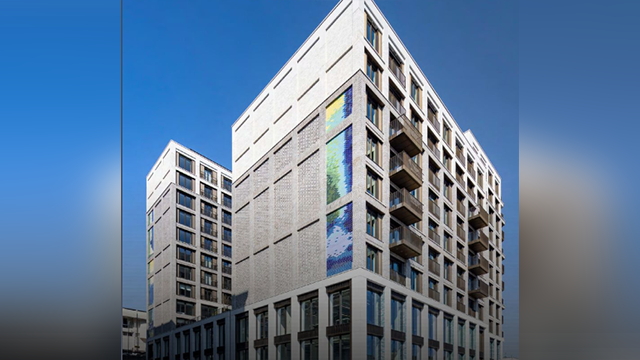R (on the application of Etherton) v Hastings Borough Council
Mr Michael Harrison QC, sitting as a deputy High Court judge
Planning application – Determination – Procedural irregularity – Site visit – Claimant objecting to planning application – Defendant local planning authority arranging site visit – Number of members of planning committee not informed in time and failing to attend – Some of those members not voting on application – Others participating in vote on basis of knowing site well – Whether material departure from defendants’ protocol on site visits – Whether prejudice to claimant – Claim dismissed
The defendant local planning authority received an application for planning permission and conservation area consent for the erection of a block of three flats and two bungalows in the grounds of an existing hotel. The claimant local resident was among those who lodged objections to the application on the ground of harm to the character of the area, overdevelopment and parking, particularly the possible effect upon roadside parking.
A site visit was arranged for members of the defendants’ planning committee, which took place on the same day as the meeting at which the application was to be considered. The defendants’ protocol for site visits stated that they should take place only in exceptional circumstances; a visit would substantially benefit planning committee members. It also stated that all members should be notified and should attend unless they had special reasons not to do so. If members had not attended, this was to be stated and recorded at the relevant meeting, and those members were to sit back and refrain from voting on the application unless they had acquired sufficient relevant knowledge by other means, in which case the basis of that knowledge was to be recorded.
Planning application – Determination – Procedural irregularity – Site visit – Claimant objecting to planning application – Defendant local planning authority arranging site visit – Number of members of planning committee not informed in time and failing to attend – Some of those members not voting on application – Others participating in vote on basis of knowing site well – Whether material departure from defendants’ protocol on site visits – Whether prejudice to claimant – Claim dismissedThe defendant local planning authority received an application for planning permission and conservation area consent for the erection of a block of three flats and two bungalows in the grounds of an existing hotel. The claimant local resident was among those who lodged objections to the application on the ground of harm to the character of the area, overdevelopment and parking, particularly the possible effect upon roadside parking.A site visit was arranged for members of the defendants’ planning committee, which took place on the same day as the meeting at which the application was to be considered. The defendants’ protocol for site visits stated that they should take place only in exceptional circumstances; a visit would substantially benefit planning committee members. It also stated that all members should be notified and should attend unless they had special reasons not to do so. If members had not attended, this was to be stated and recorded at the relevant meeting, and those members were to sit back and refrain from voting on the application unless they had acquired sufficient relevant knowledge by other means, in which case the basis of that knowledge was to be recorded.Owing to an oversight, some of the committee members did not receive notification of the site visit in time and therefore failed to attend. At the meeting, four members sat back or withdrew. Of those who remained, two had attended the site visit and the rest confirmed that they knew the site well. Planning permission was granted by four votes to two.In a judicial review action, the claimant contended that the grant of planning permission was flawed by procedural irregularity in that the defendants, having adopted a protocol on site visits, had failed to apply it.Held: The claim was dismissed. There had been no material departure from the protocol and such departure as had arisen had not prejudiced the claimant. Although a number of the committee members had not received their letters in time and to attend the site visit, and although some of them had therefore sat back and not voted, there was no evidence to suggest that, in different circumstances, the result of the vote would not have been the same or that the vote had not been taken by a properly constituted committee. The reason for the site visit had not been identified, but those who had attended and those who “knew the site well” had been qualified to judge the main issues of amenity and parking. The latter statement, in context, meant that the members in question had been sufficiently familiar with the site and its surroundings to have been able to make an informed decision without the need for a site visit. That was a matter of judgment for the members in question. Although the basis of their “sufficient relevant knowledge” had not been announced, there was little more they could have said on the subject. The absence of exceptional circumstances for the visit, contrary to the protocol, merely meant that some members had visited the site unnecessarily and had not prejudiced the claimant: R (on the application of Ware) v Neath Port Talbot County Borough Council [2007] EWHC 913 (Admin); [2007] JPL 1615 (appealed at [2007] EWCA Civ 1359; [2008] 1 EGLR 55; [2008] 07 EG 144 considered.Richard Banwell (instructed by Brachers Solicitors, of Maidstone) appeared for the claimant; Paul Shadarevian (instructed by the legal department of Hastings Borough Council) appeared for the defendants.Sally Dobson, barrister










